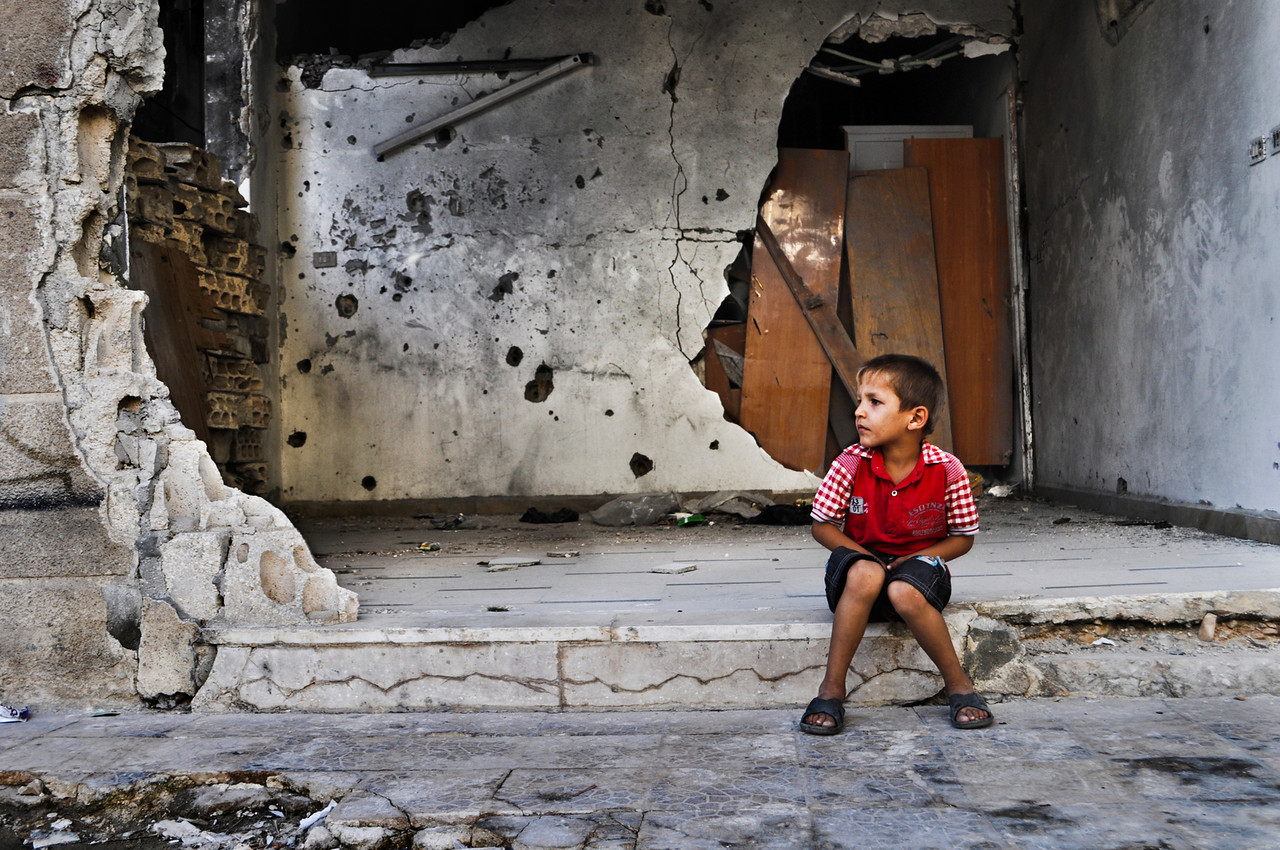
Boy sits outside ruined building in Homs, Syria. Photo Credit: WFP/Abeer Etefa
Syria long ago became a source of a steady trickle of bad news but recent reports coming from several UN agencies working in Syria highlight just how dire the humanitarian situation there has become.
First up is a new report from the World Food Programme and the UN Food and Agriculture Organization that found as many as 4 million Syrians currently do not have the means to buy or produce enough food to sustain themselves. Part of this is due to the complete disruption of the agricultural industry within the country where many farmers have fled the violence and fuel for farming equipment is in short supply. However the fighting also disrupted civilian supply routes meaning that food often can’t make it to its final destination. As a result, the burden of feeding millions of Syrians falls to the WFP, FAO and partner organizations. As of June, these efforts were able to reach 2.5 million Syrians but that is little more than half of those who need help within an increasingly challenging environment.
Beyond the need for food, the UN estimates that 6.8 million people are in need of humanitarian support, a number that represents nearly a third of the country’s pre-war population. With nearly 4.5 million people displaced within Syria and the near complete collapse of the economy, the remaining population is in need of everything from medical care and trauma counseling to housing and clean water.
Next there is the alarming situation appearing outside of Syria’s borders with a growing refugee crisis. UN High Commissioner of Refugees Antonio Guterres reported to the Security Council earlier this week that 2013 has seen an average of 6,000 Syrians a day fleeing the conflict, the largest refugee flow since the Rwanda genocide nearly 20 years ago.
As a result, there are now 1.8 million registered refugees in neighboring countries although that number does not count those outside the camps who have never formally registered for refugee status. Indeed, at the same Security Council meeting that Guterres testified before, Lebanon’s Ambassador to the UN Nawaf Salem reported that his country was already hosting an estimated 1.2 million refugees, roughly double the number of registered refugees recorded by UNHCR. For a country of just 4 million, the influx of so many refugees brings with it a growing possibility of instability within Lebanon.
In this regard, Lebanon is not alone. The influx of as many as 800,000 Syrians in neighboring Jordan also threatens stability there, a prospect that would be disastrous not just for Syrians but for the region as a whole. Likewise, further north the estimated 500,000 Syrians in Turkey is placing tremendous strain on that country’s political, social and economic systems. And in Iraq, a country facing its own upward trend of internal violence, officials are struggling to cope with the refugee numbers they already have and are unprepared for the growing tide coming out of Syria. The result is that countries are increasingly hesitant to take on more refugees at the same time UNHCR is urging states to keep their borders – and wallets – open for those who have nowhere else to go.
Finally there is the ultimate consequence of conflict: human lives. In June, the UN estimated that 93,000 people have died in the Syrian war since it started in March 2011. Earlier this week UN officials reported that an estimated 5,000 people were dying every month, meaning that the conflict is right around the 100,000 casualty milestone. A human rights observer group working on the Syrian conflict already pegged the death toll at over 100,000 late last month but expect an official UN announcement matching this prediction soon.
Yet despite the increasingly dire humanitarian situation, the international community still remains wary to intervene with stronger action in the conflict. For now, organizations working to address the crisis remain largely on their own with limited funds and growing political fatigue while Syrians remain waiting to see what happens next, both in the conflict and in their disrupted lives.